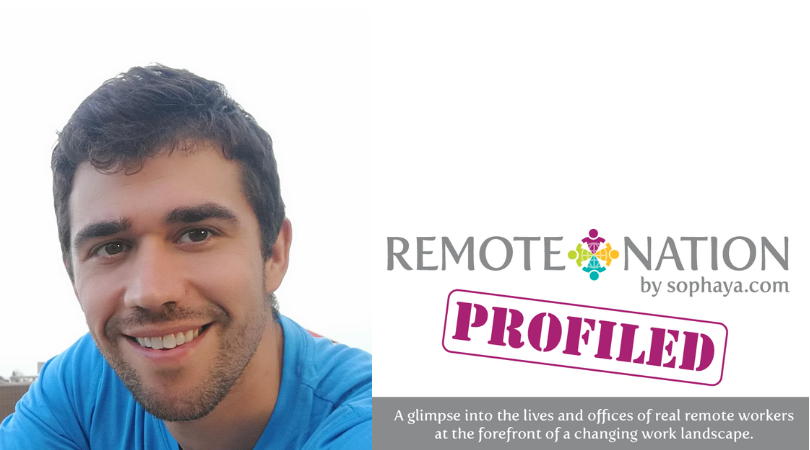Remote Team Leader Relies on Systems to Banish Micromanagement

Ben Dolgoff hasn’t owned a car since he was 19. It’s not that he can’t afford one, it’s that he doesn’t want one. He doesn’t want to be tied down, he explains. And, he hasn’t needed one as he has been moving around the world building companies and now working for Datadeck. The company founded in 2016 is a web & mobile platform that allows teams to connect all their data in one place to easily visualize and analyze key business metrics through one consolidated dashboard.
Ben currently lives in Bali and overseas a marketing team for Data Deck that is spread across offices in Malaysia, Taiwan, Japan and China. The company also has offices in Washington.
What do you value about remote work?
I am a big believer that people wake up differently and they should be able to accommodate that in their workday. Remote work allows for that because it gives people flexibility.
For me, it’s not about working from home, really. It’s about being able to go where I feel comfortable and where I can be creative. People may think when you work from home, so you lay in bed all day and do nothing, but that’s not how it is. You still have to get things done. But the focus shifts from how many hours you work to how much you produce.
What does that mean for your teams?
I don’t care about the hours, I care about how much gets done. That means they can work however they can be most efficient.
The process is that I set up what needs to be done on Trello, a project management system. Team members sign up for the projects they want to work on. The tasks and deadlines are clearly defined. People make updates as things get done so everyone knows what progress is being made.

In an office, you can end up just wasting time waiting for the clock to run out. But everyone is different, and they work at different speeds.
What are the challenges of this setup?
With remote teams, people must be self-motivated. They have to be able to set up their days and priorities in order to get things done. They have to be more deliberate about reaching out when there are issues.
How do you avoid micromanaging?
For me, I trust my teammates. I say these are the things we need to get done this month, and these are the things we should get done this week. They make it happen.
How do you communicate with your teams?
We share info about specific projects and tasks on Trello. We also use slack for messaging and video calls. I try to have a call with at least one person every day even if it’s just for five minutes. I also travel to an office a month, so I am meeting with people in person.
How do you keep your team members engaged?
It’s in setting things up and planning. I’m not assigning projects, I’m letting people know what needs to be done and then they chose what they’re going to work on. It’s also in keeping open lines of communication so they can reach me when they need to.
What are the downsides to working remotely?
The biggest thing for me is that I miss the team camaraderie. Some days, when you have a big launch it would be great to be all together. But I compensate for that with video calls and traveling to meet with the teams.
What’s your advice for remote team management?
You need to be organized. If you are going to be asking people to use KPIs, you have to set those up.
Also, plan as much as possible. The more you know about what is coming, the better you will be able to guide your team.
Have a list of things that need to be done and then let the team members be responsible for what they will do.

Working in Bali allows for flexibility.
